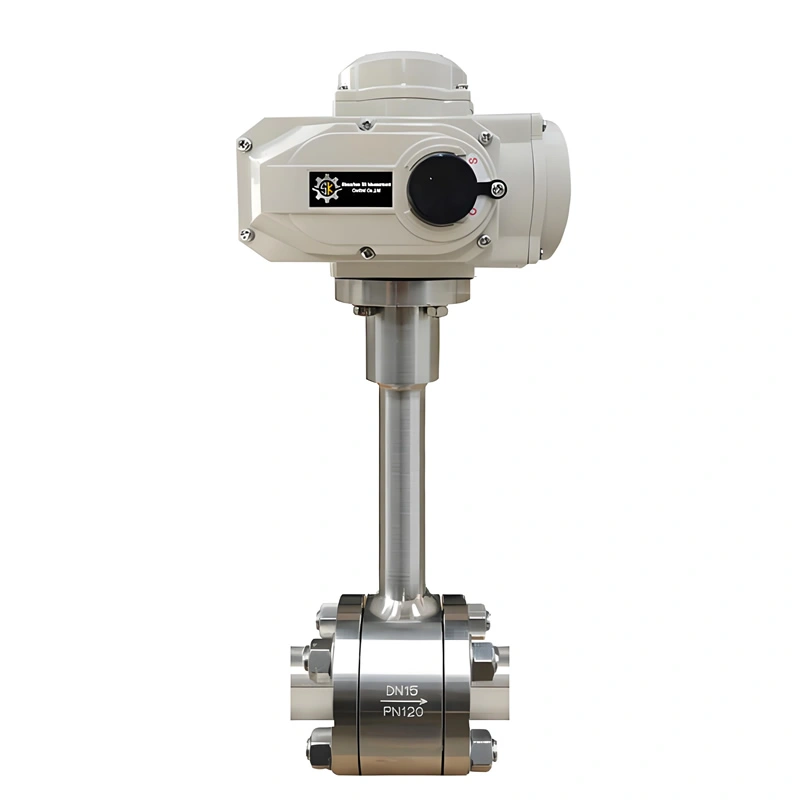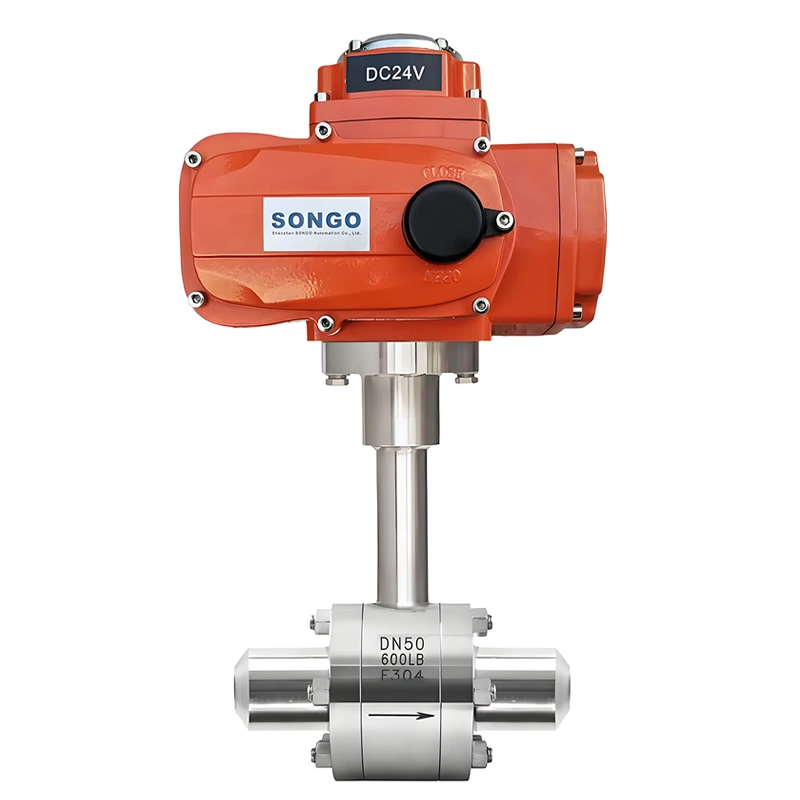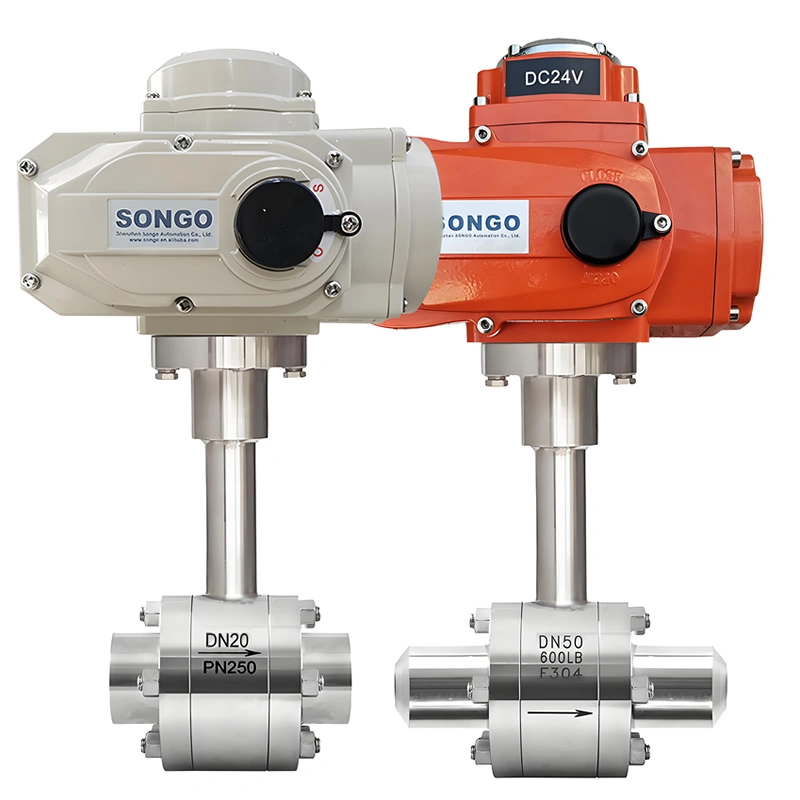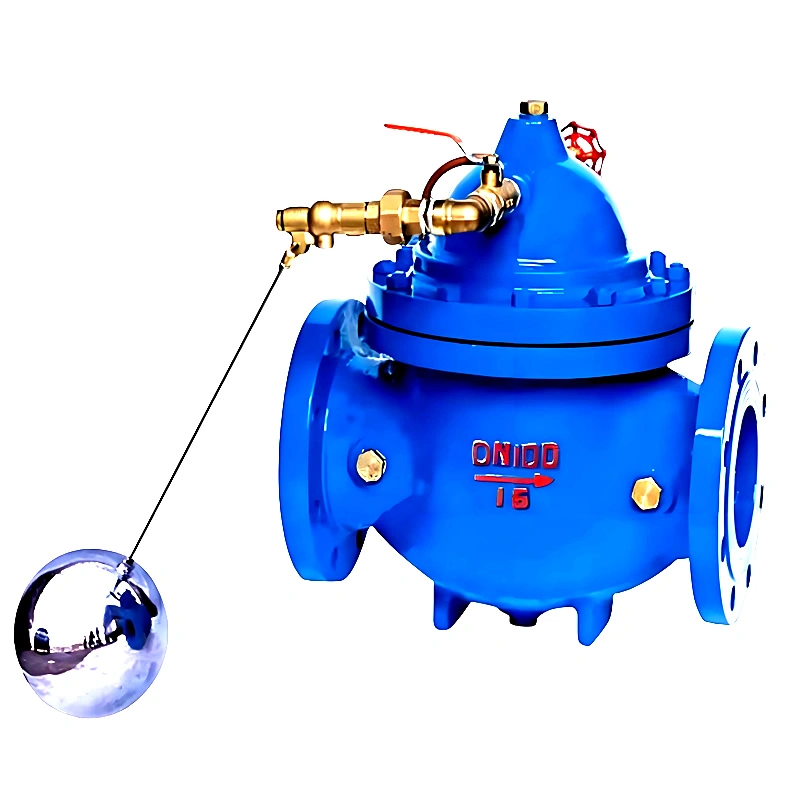- DN15 ~ DN200
- Class 150 ~ 800
- API 6D / BS6364
- Forged ASTM A182 F304/F316L
- Socket Weld / Butt Weld
- Top Entry / Full Port / Fixed Ball
- -196℃ ~ +80℃
- Extended Bonnet
- API 598 Class VI
- BS6364 Compliance
- 1.5×PN Shell / 1.1×PN Seat
- Electric / Explosion Proof
- LNG / Liquid Nitrogen / Liquid Oxygen
Low Temperature SS304/316L Forged Steel Extended Stem Socket Weld/Butt Weld Electric Cryogenic Ball Valve
I. Key Attributes and Specification Parameters
NEWWAY low-temperature electric cryogenic ball valve is engineered to meet the rigorous demands of industrial low-temperature fluid control, with specifications tailored to ensure compatibility across diverse operating conditions.
In terms of pressure handling, the valve accommodates multiple nominal pressure ratings, including PN10, PN16, 150LB, 300LB, and JIS10K, making it suitable for both low and high-pressure systems. Stringent pressure testing validates its structural integrity: shell tests apply 1.5 times the nominal pressure (e.g., 2.4MPa for PN16) with a 30-minute hold to check for deformation or leakage. Seal tests use 1.1 times the nominal pressure for liquid media (1.76MPa at PN16) and 0.3–0.8MPa for gas, ensuring zero leakage through precision pressure drop monitoring.
Temperature resistance is a defining feature, with the valve operating reliably across a range of -196℃ to +80℃. This breadth allows it to handle ultra-cold media such as liquid nitrogen (-196℃), liquid oxygen (-183℃), and liquid argon (-185.9℃), while also accommodating ambient and moderately high-temperature fluids like hot water and steam. The design prevents material embrittlement and seal degradation even under extreme thermal fluctuations.
Size and connection options cater to varied pipeline requirements, with nominal diameters from DN15 (1/4 inch) to DN200. Socket weld (SW) and butt weld (BW) connections are available: SW conforms to ASME B16.11, ideal for small to medium-diameter lines requiring compact, leak-tight joints; BW adheres to GB/T 14383, suited for large-diameter or high-pressure systems where weld strength is critical. Both connections eliminate the need for additional adapters, simplifying installation.
Material selection prioritizes durability and corrosion resistance. The valve body, ball, and stem are crafted from SS304 or SS316L forged stainless steel. SS304 offers excellent general corrosion resistance and low-temperature toughness, while SS316L, enhanced with molybdenum, provides superior resistance to acids, alkalis, and marine environments. For seals, PTFE or PCTFE is used—both maintain elasticity at -196℃, resist chemical attack, and ensure long-term sealing performance.
The electric actuator is designed for versatility and precision. It accepts voltages including 12V DC, 24V DC, 110V AC, 220V AC, and 380V AC, adapting to global power standards. Control signals such as 4–20mA DC, 1–5V DC, 0–10V DC, and RS485 enable seamless integration with PLC and DCS systems for remote operation. Actuator response times (90° cycle) range from 15S to 100S, with fast-acting models for emergency shutdowns and slower variants for steady regulation. Protection ratings (IP65/IP67/IP68) shield internal components from dust, water, and submersion. Actuators are available in on-off (for binary control) and modulating (±1% accuracy) configurations to match process needs.
Additional features include broad media compatibility (water, steam, gases, cryogens, corrosives), a 12-month warranty, and compliance with ISO 5211 for actuator mounting, enhancing interchangeability and maintenance efficiency.
Product Overview
(II) Manufacturing Processes
Production adheres to strict protocols to ensure reliability in extreme conditions. Forging is the first critical step: SS304/316L billets undergo hot forging with a minimum 1.5:1 ratio, refining grain structure and eliminating porosity. Post-forging heat treatment (normalizing and tempering) relieves internal stresses, enhancing low-temperature toughness to prevent brittle fracture at -196℃.
Precision machining follows, with CNC lathes and mills shaping valve bodies, balls, and stems to IT7–IT8 tolerances. Sealing surfaces are finished to Ra≤0.8μm for tight contact, while stem diameters and straightness are controlled to minimize friction. Socket and butt weld joints are machined to match ASME and GB standards, ensuring weld integrity during field installation.
Actuator assembly involves modular components—motors, gears, and control modules—with tight tolerance controls on clearance fit. Each actuator undergoes calibration for voltage compatibility, signal response (±0.5% error), and cycle time (±1S deviation). Environmental testing includes IP rating verification via spray and immersion trials.
Final validation includes shell and seal tests (30-minute and 15-minute pressure holds, respectively), cryogenic performance checks (2-hour exposure to -196℃ followed by function testing), and 100-cycle operation tests. Only valves passing all criteria proceed to packaging.
Valve Details
Compared to conventional valves, NEWWAY’s offering delivers superior longevity: forged stainless steel construction and PTFE seals extend service life to over 5 years in standard conditions, outperforming cast steel valves (2–3 years) and reducing replacement costs.
Structural advantages include the extended stem’s protection of actuators, versatile weld connections for varied installations, and modular actuators that simplify repairs—cutting downtime.
Automation capabilities set it apart: precise modulating control (±1%) suits fine-tolerance industries like pharmaceuticals, while remote integration reduces labor costs and human error. Safety features, including leak-tight design and actuator overload protection, mitigate accident risks, supporting compliance with industrial safety standards.
NEWWAY’s quality commitment is evident in material traceability (certified test reports), a 1-year warranty, and technical support for installation—enhancing user confidence and operational efficiency.
Application
III. Product Applications
The valve’s versatility makes it indispensable across industries requiring precise low-temperature fluid control.
In oil and gas, it manages LNG (-162℃) and LPG (-42℃) in extraction, storage, and transport. As tank inlet/outlet valves or pipeline shut-off devices, it ensures tight sealing during terminal offloading and fueling, with SS304/316L resisting corrosion from moisture and contaminants.
Chemical processing benefits from its ability to handle cryogens (liquid nitrogen, oxygen) and corrosives (nitric acid, acetic acid). In fine chemicals, it regulates Liquid nitrogen flow to maintain reaction temperatures in low-temperature kettles; in chlor-alkali production, SS316L resists caustic solutions, ensuring uninterrupted operation.
Energy sectors rely on it for hydrogen processing (liquid hydrogen pretreatment at -196℃) and semiconductor manufacturing (argon gas control). Power plants use it in thermal cooling systems and nuclear coolant loops, with electric actuation enabling automated, safe operation.
Pharmaceutical applications include low-temperature synthesis (-80℃ to -20℃) where precise flow control of intermediates is critical. It also maintains temperature in vaccine cold storage (-20℃ to -80℃), preventing refrigerant leaks that could compromise efficacy. In wastewater treatment, SS316L withstands chemical disinfectants.
Food industry uses include controlling liquid CO₂ in freezing processes to preserve texture, and regulating food-grade CO₂ in carbonated beverage production—with SS304 meeting hygiene standards to avoid contamination.
Metallurgy benefits from its role in rare metal smelting (argon atmosphere control) and steel cold rolling (coolant flow regulation), where SS304 resists corrosion from cooling water impurities, ensuring consistent product quality.




